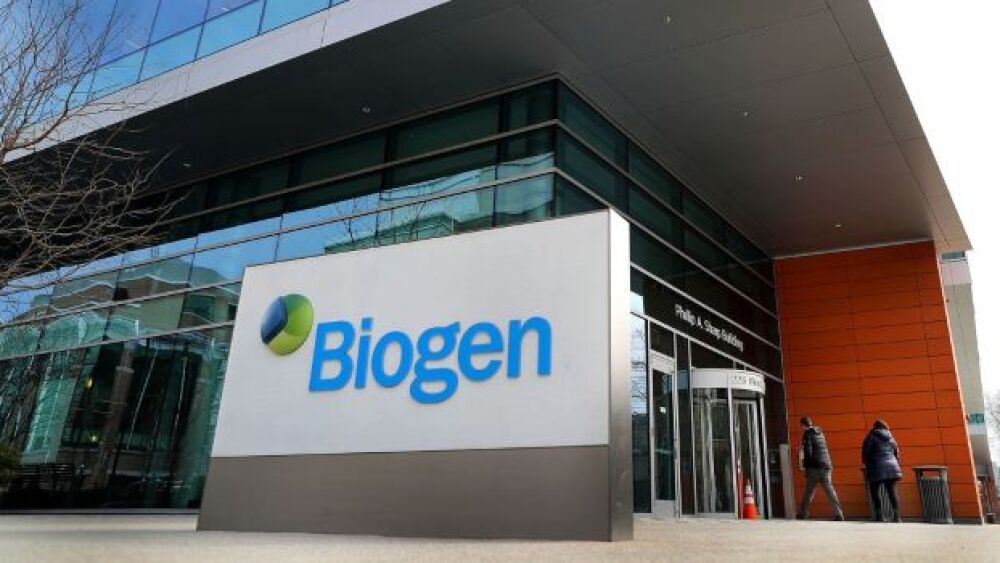The FDA’s Peripheral and Central Nervous System Drugs Advisory Committee voted 9-0 that tofersen’s effect on neurofilament light chain (NfL) could be a reasonable predictor of clinical benefit.
Biogen sign in front of an office building/courtesy of John Tlumacki/The Boston Globe via Getty Images
Biogen and Ionis are one step closer to accelerated approval of tofersen in superoxide dismutase 1 (SOD1) ALS as the FDA’s Peripheral and Central Nervous System Drugs Advisory Committee voted 9-0 that the drug’s effect on neurofilament light chain (NfL) could be a reasonable predictor of clinical benefit.
However, the panel of external experts did not recommend traditional approval for tofersen, voting 5-3, with one abstention, that the data was not enough to conclusively establish the candidate’s effectiveness in this indication.
The FDA is not required to follow the advisory committee’s recommendations, though it usually does. Tofersen’s target action date is April 25.
Licensed from Ionis in 2018, tofersen is an investigational antisense oligonucleotide that works by targeting the mutant SOD1 mRNA and lowering the levels of the faulty protein.
The FDA accepted Biogen’s New Drug Application for tofersen in July 2022. The NDA was based largely on the use of NfL as a biomarker that could reasonably predict clinical benefit. The Phase III VALOR study did not meet its primary endpoint.
In the trial, the candidate was unable to significantly improve patients’ scores in the Revised Amyotrophic Lateral Sclerosis Functional Rating Scale (ALSFRS-R) relative to placebo.
However, tofersen did lead to significant reductions in levels of the SOD1 protein and NfL, a known biomarker of neurodegeneration and axonal damage in ALS.
In briefing documents released ahead of the advisory committee meeting, the FDA expressed apprehension with relying on biomarker data, writing that the link between the changes in NfL levels and ALSFRS-R scores was “small in magnitude and may be influenced by potentially data-driven analysis choices.”
The panelists, however, disagreed. During discussions regarding the use of biomarker data, Klaus Romero, M.D., chief scientific officer, Critical Path Institute, emphasized that the question before the panel was whether NfL was a reasonably likely predictor of clinical benefit, not whether it is a fully validated surrogate.
“We should always balance the epistemic need versus the ethical considerations,” Romero said, referencing the need for a treatment option for this rare disease and the difficulty of conducting another placebo-controlled study in this indication. “The epistemic needs should never trump the ethical considerations.”
All available evidence shows that NfL is indeed a reasonably likely marker of clinical benefit, Romero said.
If granted accelerated approval, Biogen will need to run a Phase III confirmatory study to validate the clinical efficacy of tofersen to keep the medicine on the market. The company has proposed to use the ongoing ATLAS study, which will study tofersen in pre-symptomatic patients, to fulfill this requirement. Data from ATLAS are expected in 2027.






